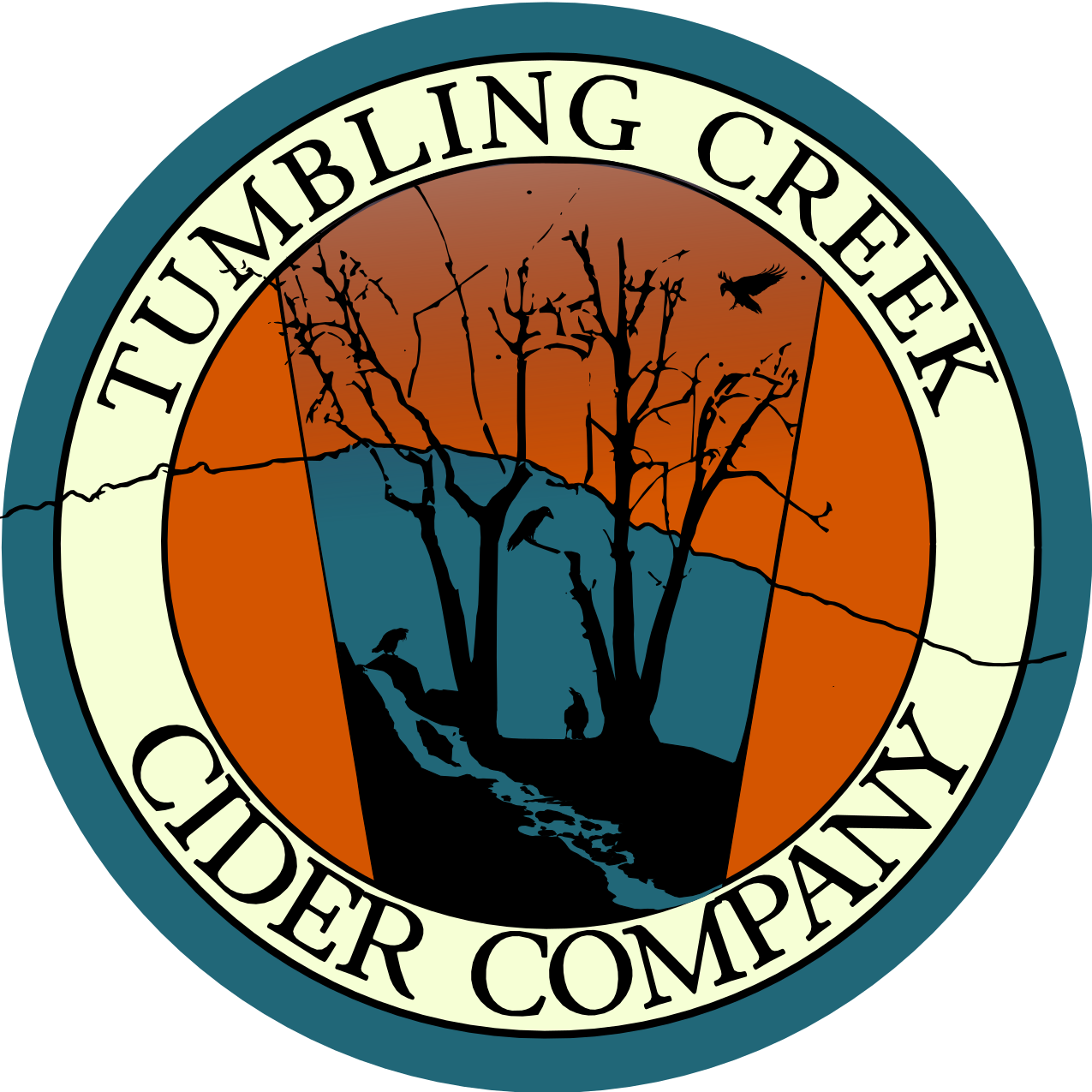Sustainability
From Apple to Glass, we care about what we drink. You should too.
Thoughts on Sustainability in Cidermaking at the Kelly Ridge Farms from owner/operator and TC3 Co-Founder, Justen Kelly Dick.
This word sustainability is used a lot.
So much so that it loses its meaning at times. It is easy to say, since it doesn't really have a concrete meaning or specific metric by which to judge. I (as do most of my other cider partners) worked in the environmental and science arenas for many years, and we are particularly sensitive to both "greenwashing" (i.e. saying things are green without much substance to the actions) and to un-"sustainable" restrictive conservation practices.
Here are my thoughts and our own metrics on how we approach sustainability with Tumbling Creek Cider Company.
First, the big picture:
For our region here in Appalachia to be sustainable and successful, we have to have people doing primary production. That is, we need people making things and growing things. Historically, folks moved to the area because the land was available, it was fertile for farming, it was along migration pathways (now the I-81 corridor), and it was rich in coal and timber resources.
We have a rich history of agriculture in the region. Most of our land in production is focused on cattle, because we have rolling hills suited to grazing and a healthy rock crop each year. Orchards had a rich history, with family farms such as Bonhams and Duncans in the Chilhowie area. Packing houses sorted and packaged the fruit before supplying the region.
“Every pound of apple or hop that is produced here, is new primary production economic activity for the the region and State.”
I started growing hops with my family farm Kelly Ridge Farms as a replacement specialty crop in 2012. We set up the hop yard so that it could be operated as a certified organic crop. We harvested black locust and red cedar trellis poles from timber stands on the farm. However I swiftly found that while virtually everyone is enthusiastic about certified organic local hops, virtually everyone wants that crop at the same price as the bulk commodity hop they currently use.
We currently use a hybrid approach- we are not certified organic, but we use our experience to be selective in how we grow. Certified Organic production is not the end-all-be-all to sustainability either. It often relies on copper based products; copper is a heavy metal that doesn't go away- it will build up in the soil over time if overused.
The value of new crops (or in the case of apples, bringing back old crops), is that it is new production revenue to the region.
Currently, brewers (and some cider makers) send their hop or apple money to Washington or Oregon state. That money is lost to the region (not even counting the financial and environmental costs of transcontinental shipping!). Alternatively, every pound of apple or hop that is produced here, is new primary production economic activity for the the region and State. Building this production (growing and making stuff) is the foundation of the vitality of a place and is our primary mission to support.
But wait-
What's this got to do with sustainability?
Well, every time we chose to grow a crop in-house, in a "sustainable" fashion, it costs more on the bottom line. We could buy some big tanks and ship in apple juice of a standardized metric (pH, acidity, sugar, etc) from the West coast for 1/2 or 1/4 the cost and get optimal utilization of our capital infrastructure by making batches of cider every 2-4 weeks. This is a very profitable business model.
We chose however to not go this route. My favorite author L. E. Modesitt Jr. speaks of external diseconomies. These are the hidden costs that are absorbed by a society. For example, when you buy products made outside of the region or country, at a cheaper apparent cost, you are not accounting for the hidden societal costs of poor labor practices or environmental impact costs from fewer environmental regulations compared to the US.
We chose to buy local when we can.
We use whole fruit instead of juice or aseptic fruit puree when we can.
When we decide what cider styles to make, we focus on adjuncts and styles that can be grown locally rather than importing tropical fruit.
You probably wont see much mango or pineapple ciders from our cidery. We also try not to be too rigid in these boundaries, but rather keep the end goal in sight.
I have lots more thoughts on sustainability and the place of community in the growth of The Tumbling Creek Cider Company. I’ll spend more time in future segments talking about our responsibility to this place and this land.
Back to work!
~Justen




